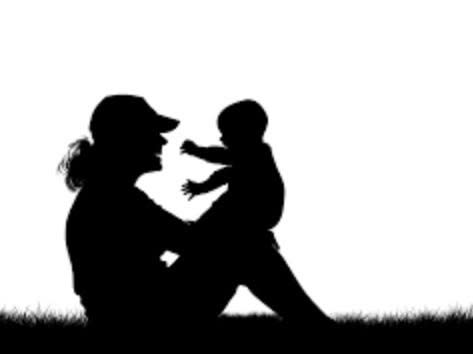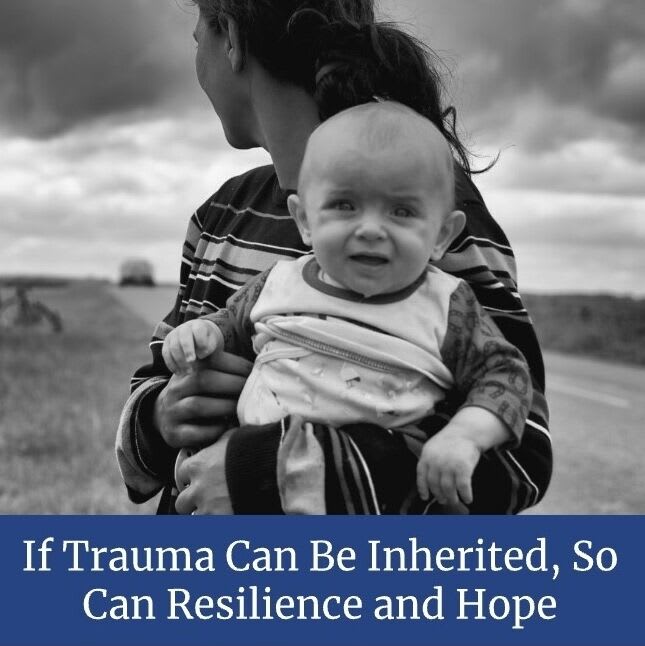Intergenerational Trauma

posted 20th September 2024

The Legacy of Trauma: How It Can Be Passed Down Through Generations
Trauma doesn't always end with the person who experiences it. For many families, emotional wounds echo through generations, affecting not just those who lived through the trauma but also their children and even grandchildren. Research into intergenerational trauma shows that events like suicide, neglect, childhood abuse, and addiction can have a lasting impact, shaping how families function and how children grow up—whether or not they ever directly experience those traumatic events themselves.
Understanding Intergenerational Trauma
Intergenerational trauma occurs when the effects of a parent's traumatic experiences influence their children's emotional and psychological development. This transmission can happen in various ways, from the behaviour and emotional responses of the parent to the environment in which a child is raised. A parent who survived a traumatic childhood may, unknowingly, pass down the psychological imprint of their pain. This can manifest in many subtle, but powerful, ways: anxiety, overprotection, neglect, emotional detachment, or even addictive behaviours.
Take, for example, a parent who lost a close family member to suicide in their youth. The pain and grief may lead them to develop a deep-seated fear of losing their own child. To protect their child from any perceived dangers, they may become overly controlling and anxious, restricting their child’s freedom. While the parent’s intentions may come from love, the overprotective behaviour can have unintended consequences. Children raised in an environment of constant anxiety and overprotection can grow up feeling smothered, without the ability to develop autonomy or resilience. They may become dependent, emotionally volatile, or unable to cope with the challenges of life—behaviours that can lead to chaos in their lives and relationships.
Emotional Inheritance: Beyond Genetics
While genetics can play a role in shaping our mental health predispositions, much of the impact of trauma is rooted in emotional inheritance. Parents who have endured childhood trauma may exhibit coping mechanisms—such as emotional withdrawal or hypervigilance—that their children absorb and internalise. Even if a child doesn’t directly experience trauma, they live in the shadow of their parent’s unresolved pain. The child may pick up on subtle cues: a mother’s anxiety over safety, a father’s avoidance of emotional closeness, or a parent’s inability to cope with stress in a healthy way.
For instance, children of a parent who experienced childhood abuse may witness their parent’s fear of conflict or struggle with establishing healthy boundaries. As a result, these children may become hyper-aware of emotional shifts, learning to navigate an unpredictable emotional landscape. This can lead to patterns of people-pleasing, self-blame, or emotional dysregulation later in life.
In some cases, the trauma of neglect or addiction may result in a parent emotionally shutting down, unable to fully connect with their child. In response, the child might become emotionally needy or develop a sense of insecurity, craving attention and validation.
Trauma's Influence on Parenting Styles
Trauma often shapes parenting styles in profound ways. Parents who have experienced significant childhood trauma may inadvertently project their fears or unresolved emotions onto their children. They may become overprotective or controlling, as in the case of a parent anxious about preventing another tragedy, like suicide or addiction. This overprotection can create a sheltered and chaotic environment for the child, where they don’t learn to navigate challenges or boundaries on their own. They may be spoiled with material goods or excessive attention, but lack emotional stability, discipline, or resilience.
On the other hand, some parents may overcompensate by being emotionally distant or neglectful, trying to shield themselves from the possibility of further emotional pain. These children may grow up feeling unloved, emotionally detached, or unable to form deep, meaningful connections.
Breaking the Cycle
The good news is that the cycle of intergenerational trauma can be broken. Awareness is the first step. Recognising how trauma has influenced a parent’s behaviour and acknowledging how these patterns may affect their children is crucial in healing. Therapy, whether individual or family-based, can be incredibly effective in unpacking these complex dynamics and helping parents develop healthier coping mechanisms.
Children, too, can benefit from learning to understand their emotional inheritance. Teaching them emotional intelligence, resilience, and healthy coping strategies can prevent the cycle from continuing into future generations.
Parents who are aware of their trauma and its potential impact can begin to shift their parenting styles to avoid repeating patterns. This could mean learning to allow their children more freedom, developing healthy emotional boundaries, or seeking help to process their unresolved feelings of grief, loss, or fear.
Moving Forward
While trauma may leave scars, it doesn’t have to define the future of a family. By recognising and addressing the deep emotional wounds passed down through generations, both parents and children can break free from the cycle of intergenerational trauma. With awareness, support, and healing, families can begin to build healthier, more resilient futures.
Trauma may be inherited, but so too can resilience and hope. By choosing to confront their past and make conscious changes, parents can give their children the gift of emotional freedom and stability—something far more powerful than the weight of unresolved trauma.



